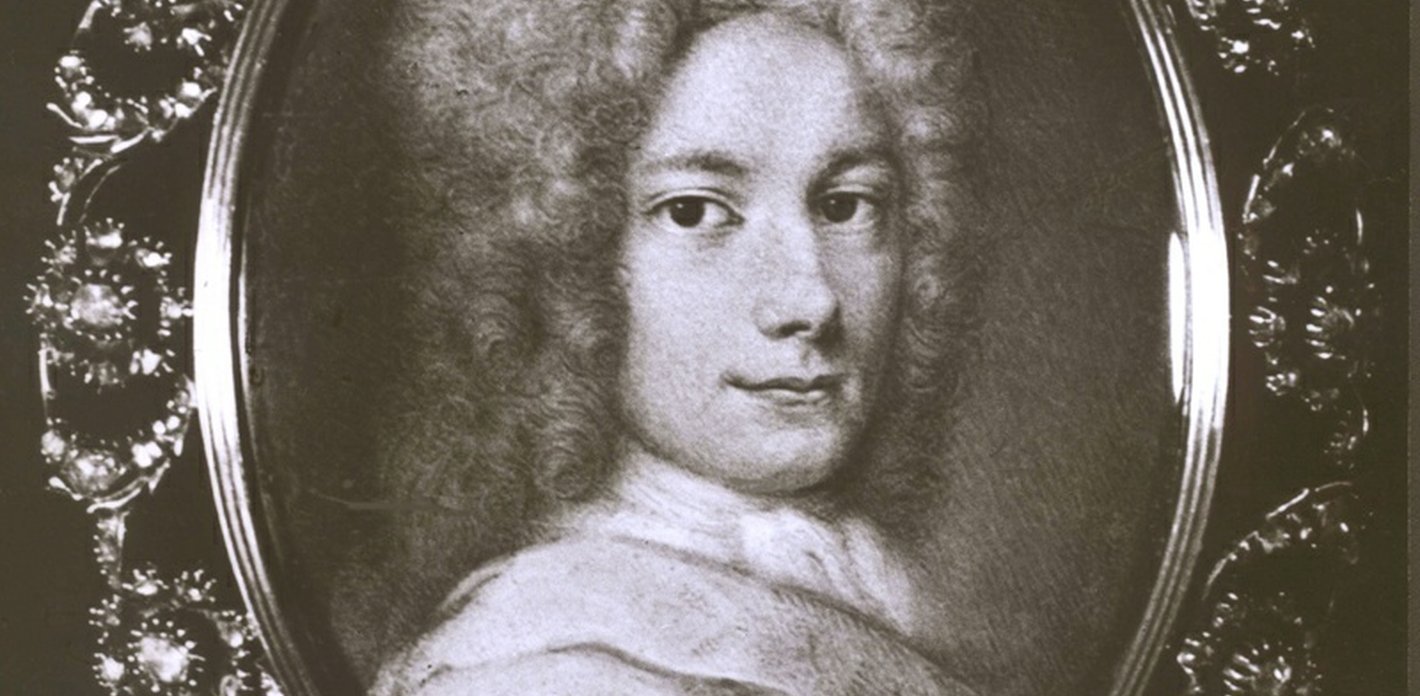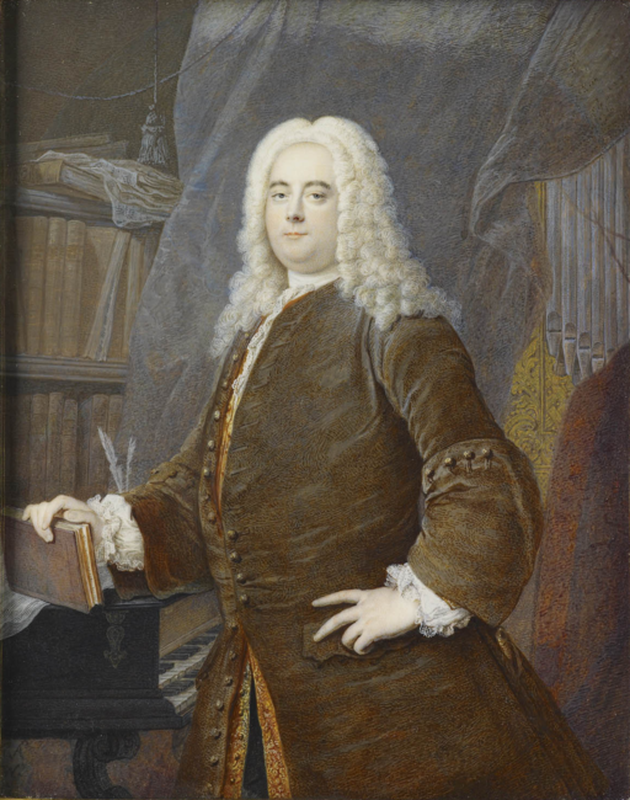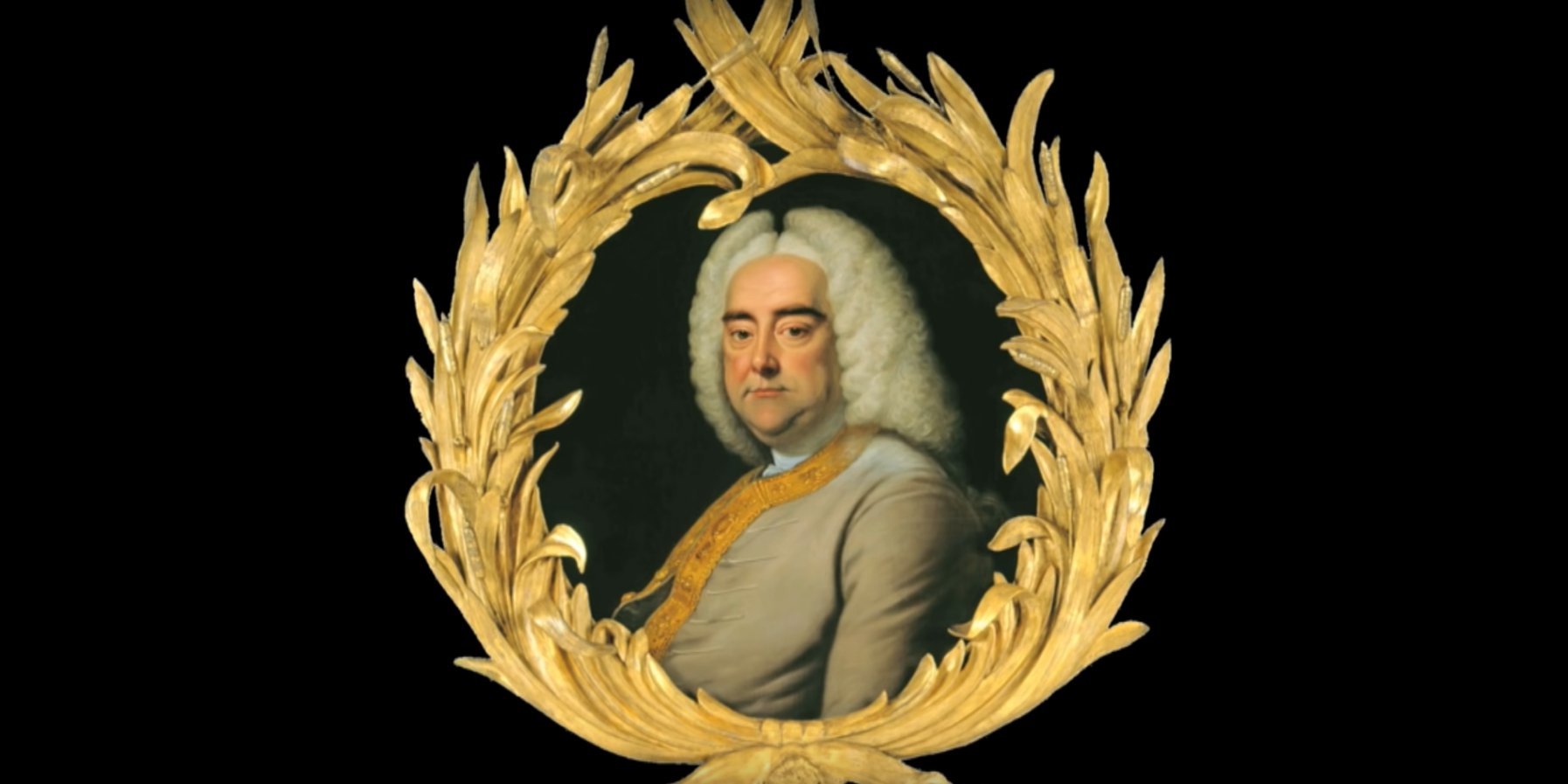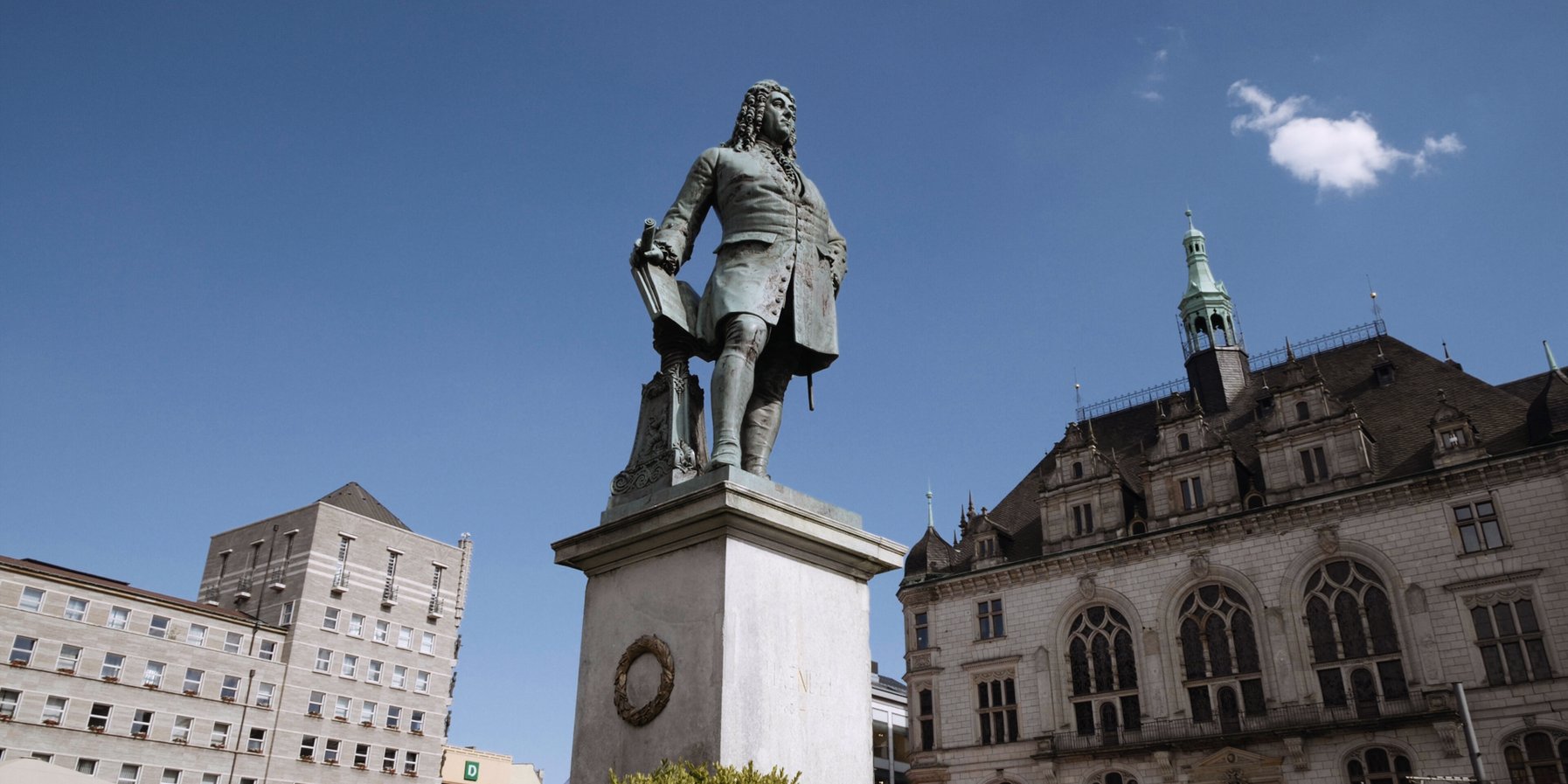A true genius, so people say, is always ahead of his time. And there seems to be some truth to that: Johann Sebastian Bach, Franz Schubert and Gustav Mahler were all composers who became famous after their deaths; during their lifetimes, they only enjoyed modest success. Things evolved very differently for George Frideric Handel: from his native Halle in Saxony, he set out to conquer the world, and bronze statues were even erected in his honour in his own lifetime. Handel left more works to posterity than Bach and Beethoven combined, and his fame remains undimmed to this day. What was the secret of his success?
Handel the Businessman
Handel’s career is the story of an unprecedented rise to fame and fortune: born in the town of Halle on the river Saale as the son of a court physician, he was soon discovered as a child prodigy and received musical training. He had his breakthrough with his first opera »Almira« here in Hamburg at the Gänsemarkt Opera House, where a jealous rival even challenged him to a duel. He went on to tour Italy for a number of years, where he got to know fellow composers, princes and kings, and earnt himself the nickname »Il Sassone« (the Saxon).
Already famous in his mid-20s, he settled in London in 1712, where he made a name for himself on the fiercely contested music market of what was probably the most exciting cultural centre in Europe at the time. In the process, he showed himself to be not only a hard-working composer (he wrote a total of 42 operas), but also a clever businessman and a marketing genius. His legendary appetite and his imposing girth can be seen as a sign of his success.
Handel the Freethinker
At the peak of his career, Handel was »a free artist who no longer felt obliged to comply with the aesthetic preferences of an absolutist ruler or the dogmatic demands of the church authorities; he felt bound only by the wishes and expectations of an educated and well-off public«, as Hamburg musicologist Hans Joachim Marx puts it.
This was new at a time when many of Handel’s predecessors and contemporaries composed in the employ of princes, kings or church dignitaries. Handel, too, was not disinclined to accept this kind of support, but he then went ahead and did what he wanted to anyway. When he moved to London, for example, he was actually still in the service of the Elector of Hanover; but his princely employer didn't seem to have been angry at Handel’s permanent absence without leave. When the Elector was crowned King George I of England two years later, he commissioned various pieces from Handel, among them the famous »Water Music« and »Fireworks Music«. No one could remain immune to the pull of the composer’s magnificent scores.
George Frideric Handel: Music for the Royal Fireworks
»Handel is not just a composer in England, he is an institution. Even more than that: he is a sacred institution.«
George Bernard Shaw, winner of the Nobel Prize for Literature (1856–1950)
Handel the Pop Musician
Handel was a genius, there can be no doubt about it. But he didn’t just sit at his desk and wait for inspiration from above to help him write works of spiritual edification. On the contrary: his music was and remains light music, music written to entertain in the best sense of the word! It’s no contradiction that he applied high artistic standards: really good pop music follows the same criteria. It fits into the picture that most Baroque arias are between three and five minutes long – just like today’s pop songs. And the recipe worked: Handel’s tunes are still in widespread use today, for example, the famous »Halleluja« chorus from the »Messiah«, or the first bars of the coronation anthem »Zadok the Priest«, which is now the theme tune of Champions League football. Maybe the explanation is this simple: it’s really easy to whistle or hum a Handel tune. Try it and see!
Handel the Pop Titan: An Interview with Christina Pluhar
Stolen from Handel: The UEFA Champions League Hymn
Handel vs. Bach
Anyone who discusses Handel can’t ignore Bach. And they are so close together! Just a few days, and a few more kilometres, separate the two composers: Handel was born on 5 March 1685 Halle, while Johann Sebastian Bach came into the world on 31 March of the same year in Eisenach. But their respective careers and music couldn’t have been more different. On the one hand we have the man-about-town Handel, a global player in the music business of his time. And on the other there is Bach, who scarcely left the region of Thuringia and Saxony his whole life. He did visit Hamburg and Berlin, but that was enough travelling for his taste. Nonetheless, Bach was thoroughly up to date himself: what Handel experienced live in other countries, he studied in musical scores that he had sent to him.
This notwithstanding, we feel that we can identify the different personalities in their music as well. The scholarly Bach wrote subjective, introspective music that reveals itself not only to the listener’s ears, but also on an intellectual level. Handel, on the other hand, takes a much more lavish approach, with emotions and widespread impact as his driving forces. Incidentally, the two giants of German Baroque music never actually met in person. If the history books are to be believed, a meeting was planned on three occasions. But it was not to be: Bach and Handel never met.
Text: Simon Chlosta, last updated: 14 Nov 2019









